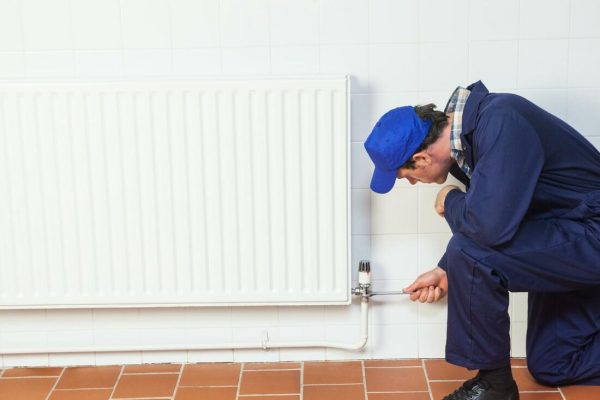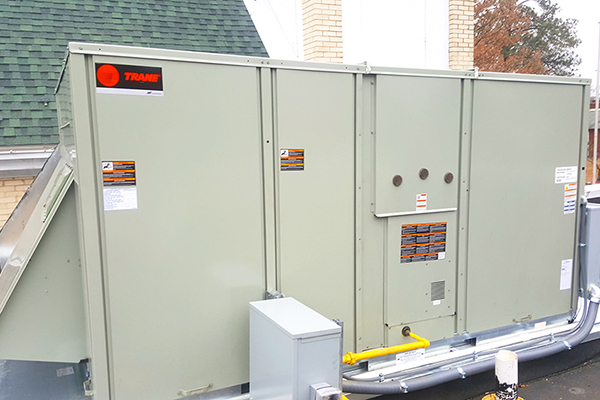Did you know that roughly 75% of home owners experience a/c noise issues eventually? When your AC begins making unusual sounds, it can be fairly turbulent to your peace and convenience.
From rattling and buzzing to squealing and banging, these noises can suggest underlying issues that require interest. Recognizing the resource of the sound is necessary for effective repairs and guaranteeing your air conditioning system operates effectively.
So, if you're tired of tolerating irritating AC noises disrupting your tranquility, there are options at hand.

If your air conditioning system is making unusual sounds, maybe as a result of among numerous usual sources.
One regular culprit is issues with the ductwork. With time, air ducts can establish leaks, loose connections, or even blockages. These troubles can cause air to stream erratically, bring about whistling or rattling audios. A comprehensive ductwork evaluation by an expert can aid identify and remedy these problems, recovering your system's smooth procedure.
Another usual source of sound in cooling systems is a damaged motor. The electric motor is a critical component that drives the fans and various other moving components within the system. If the motor is worn or damaged, it can produce grinding, screeching, or clunking noises. In such situations, motor replacement may be necessary to get rid of the source of the disruption. Normal maintenance and timely electric motor replacement when needed can assist maintain your air conditioning system running quietly and efficiently.
To attend to rattling and buzzing audios in your cooling system, begin by inspecting the components that might be creating these noises, such as loose parts or worn-out elements. Vibration seclusion is type in fixing these problems. Check for any type of loose screws, bolts, or panels that may be shaking against each other during operation. Tightening these can frequently relieve the rattling sounds.
Furthermore, check the fan electric motor for any type of indications of wear and tear. Routine follower motor maintenance, such as lubrication and cleansing, can help in reducing humming sounds triggered by rubbing or breakdown.
If the rattling lingers after examining and tightening elements, think about adding vibration seclusion pads or installs to soak up the excess resonances. These pads work as a buffer in between the vibrating components, decreasing the noise. Keep in mind that dealing with these audios promptly can prevent more damage to your air conditioning system and ensure its peak efficiency.
When resolving squealing and banging sounds in your a/c system, begin by identifying the source of the audios via a detailed assessment of the device's parts. Inspect the belt stress along with the motor bearings, as loose belts or damaged bearings can bring about squealing sounds. Examine the fan blade for any blockages or damages that could create banging audios when the fan revolves. Furthermore, examine the compressor coil for any type of debris or problems that could be creating the sounds.
To resolve squealing noises associated with belt stress, change the tension adhering to the maker's guidelines to see to it it's within the suggested array. If the electric motor bearings are the wrongdoer, take into consideration oiling them if possible; otherwise, they may need to be replaced. For banging noises caused by fan blade issues, repair service or replace the damaged blades immediately. When it involves the compressor coil, cleaning it extensively can commonly resolve any noise-related problems. By resolving these possible sources of squealing and banging noises, you can recover your air conditioning system to its finest operating state.
When confronted with cooling sound problems, begin by performing an aesthetic assessment of the device's parts for any noticeable signs of damage or wear. Search for loosened parts, damaged belts, or particles that may be causing the sound. If you notice any issues, make certain to tighten up loosened elements, replace harmed parts, and clean any kind of particles to see if the sound boosts.
To address a/c noise troubles, take into consideration soundproofing methods to lower the audio transmission from the system. Insulating the walls around the system, mounting soundproofing panels, or putting rubber pads beneath the system can aid moisten the sound successfully.
Regular maintenance is essential to stop a/c noise. Be particular that the unit is clean, moisturized, and properly maintained to minimize potential issues. Repairing steps like examining the fan blades and electric motor for any kind of obstructions can also aid diagnose and take care of sound troubles. For minor issues, DIY options such as tightening up screws or adjusting parts may settle the sound without the requirement for expert assistance.
Guarantee your AC runs successfully by scheduling regular upkeep checks and maintaining the device tidy and well-lubricated. Ensuring your air conditioning system functions at its best not just lowers noise yet additionally reduces energy usage. https://newmaldenhvac.co.uk/air-conditioning-repair.html To attain this, carry out noise decrease techniques such as putting vibration pads under the device to moisten sound transmission and making sure all parts are firmly tightened up. Furthermore, tidy or change air filters on a regular basis to stop air flow clogs that can stress the system and increase sound levels.
Energy intake optimization is necessary for reliable AC operation. Establish your thermostat to a suitable temperature to prevent exhausting the unit. Utilize ceiling fans to help circulate amazing air better, enabling you to increase the thermostat a little without compromising convenience. Consider setting up a programmable thermostat to adjust temperature levels automatically when you're away. By adhering to these approaches, you can maintain a comfy interior environment while decreasing power prices and sound degrees.

High a/c noise degrees can affect interior air top quality by adding to environmental pollution, which can impact your health and wellness.
To address this, think about soundproofing solutions to lower the noise from your a/c system.
When it concerns air conditioning noise and power effectiveness, there's indeed a connection.
The loud sounds created by your air conditioning unit can indicate inefficiencies that lead to boosted power intake.
By dealing with and decreasing the environmental pollution, you can enhance the general efficiency of your system.
To minimize a/c sound without compromising cooling efficiency, consider soundproofing remedies like acoustic insulation.
You can maximize performance by tuning the system for effectiveness while wetting undesirable noises.
Attempt guaranteeing all components are properly mounted and preserved, and check for loosened components that can be creating excessive sound.

When it involves cooling devices, there are specific policies and standards in position to guarantee conformity with appropriate noise degrees. These criteria aid sustain a comfortable setting without triggering disturbances.
Regulations regarding sound degrees for a/c units differ depending upon area, however usually concentrate on lessening sound exhausts to a degree that does not interfere with daily tasks. It is very important to be conscious of these guidelines to make certain your system satisfies the needed criteria.
To prevent cooling noise issues long-lasting, make certain you stick to normal upkeep. Tidy or change filters, look for loose components, and maintain the unit clean. Programmable thermostat setup
Take into consideration soundproofing methods like adding insulation around the system. By remaining on top of upkeep and taking steps to decrease sound, you can enjoy a quieter and more effective cooling system in the future.
Now that you have actually identified the typical sources of cooling noise and found out exactly how to diagnose and repair them, you can appreciate a quieter and much more reliable air conditioning system.
Bear in mind to consistently look for any kind of uncommon noises and address them promptly to stop any further damage.
By dealing with your AC device, you can ensure it runs efficiently and effectively for several years to come.